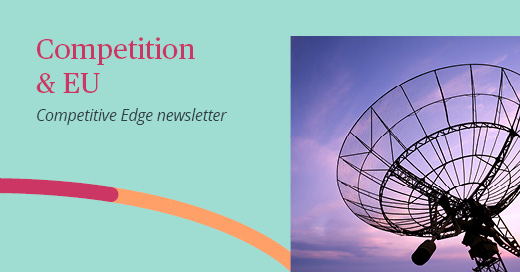ECSPR - ESMA publishes reporting from national supervisory authorities
Since 10 November 2021, the European Crowdfunding Service Provider Regulation (Regulation (EU) 2020/1503 "ECSPR") applies.
In a series of articles, we accompanied the final steps to application and reported on the scope of application of the ECSPR and the permission requirement for crowdfunding service providers; the ongoing requirements for crowdfunding service providers and their conduct obligations; the treatment of crypto-tokens under the ECSPR; the structures of crowdfunding platforms previously found in Germany under the ECSPR; the money laundering obligations of a crowdfunding service provider, and the design of the basic investment information sheet.
Now ESMA has published an update of the various notifications it has received from national supervisors (as of 17 January 2022).
1. Types of limited liability companies and their shares
The national supervisory authorities (in Germany, BaFin) are to inform ESMA annually of the types of limited liability companies and their shares offered under the ECSPR.
Various supervisory authorities have reported company forms:
| Spain | Sociedad de Responsabilidad Limitada (S.R.L.) or Sociedad Limitada (S.L.) |
| Finland | Finnish: Osakeyhtiö (Oy) Swedish: Aktiebolag (Ab) |
| Ireland | Irish: Teoranta (Teo) - Cuideachta Ghníomhaíochta Ainmnithe (C.G.A.) English: Private company limited by shares (LTD) - Designated activity company (DAC) |
| Latvia | Sabiedrība ar ierobežotu atbildību (SIA) |
| The Netherlands | Besloten Vennootschap (B.V.) |
| Romania | Societate cu raspundere limitata (S.R.L.) |
Other supervisory authorities, including the German BaFin and the Austrian FMA, have reported that there are no company forms. This means that shares in GmbHs remain excluded from the scope of application of the ECSPR and equity crowdfunding remains difficult.
2. Permitted languages
National supervisory authorities must also notify ESMA of the language or languages they accept for key investment information sheets. While many countries accept several languages (in particular English in addition to the respective national language), the German BaFin only allows German as a language. The same applies to the Austrian FMA. Luxembourg accepts most languages (Luxembourgish, German, French, English), with the exception of English, the other languages being official languages there anyway.
3. Laws, regulations and administrative provisions for marketing communications
Another reporting obligation of the national supervisory authorities exists with regard to the laws, regulations and administrative provisions for marketing communications of crowdfunding service providers that are supervised and enforced by them. While the Austrian FMA refers to the regulation of the Austrian Crowdfunding Implementation Act (Schwarmfinanzierung-Vollzugsgesetz), the German BaFin reports that there are no such regulations in Germany. It does not refer to the German Crowdfunding Implementation Act (Schwarmfinanzierung-Begleitgesetz), which amended the German Securities Trading Act (WpHG), among other things.
4. Information on the complaints procedures
The national supervisory authorities shall inform ESMA about the procedures that allow, inter alia, clients to submit complaints against crowdfunding service providers to them. BaFin and the Austrian FMA each refer in this respect to their general consumer information on complaints against supervised entities, which is not specifically addressed to crowdfunding service providers.
5. Do you have questions about the regulation of crowdfunding service providers?
Our financial regulation experts combine pragmatism and an interest in innovative solutions with technical know-how. In our daily dealings with German and European regulators, we navigate our clients safely through all registration and licensing procedures and are always up-to-date on new procedures and regulatory practices. We are happy to advise you on this.





